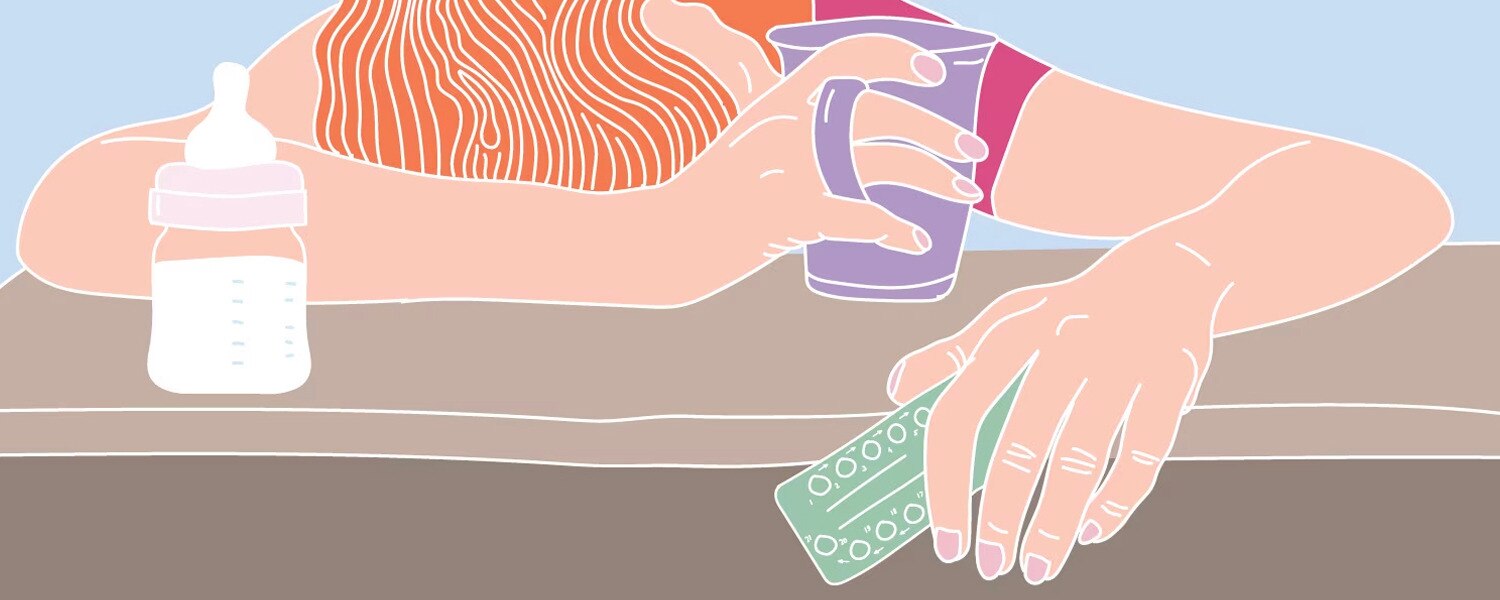What method of contraception can I use after childbirth?

Saba® - Freedom to feel comfortable.
If you have just gone through childbirth, it is advisable to take some time before experiencing a new pregnancy.
There is a wide variety of contraceptive options that you can use postpartum. Here, we tell you your options and at what point in the postpartum period you can use them.
During pregnancy, your body undergoes many changes, and now that you have gone through childbirth, it is time to go through a new phase of adjustments. Postpartum is the stage that starts right after delivery and ends when you more or less feel like you did before you were pregnant. At the same time, you will experience the postpartum period, which begins with delivery and ends with the arrival of your first menstrual period after pregnancy.
When your period returns, your menstrual cycle is returning to normal, bringing back your fertile days and ovulation. Take your time to get comfortable, and when you decide to become sexually active again, consider that there are a variety of contraceptives you can use so you don't get pregnant right away.
When to start taking contraceptives after childbirth?
First, don't rush. You just had a baby, and it may take you a while to feel the desire or urge to have sex. That's okay. There is no rule about when to become sexually active again after childbirth. That's something only you can decide. At that point, don't forget about birth control because a second pregnancy in such a short time raises the risk of infections, premature birth, and other health complications.
Learn more: How does your vagina change after giving birth?
Suppose you decide to become sexually active again relatively soon while you are still in the postpartum period. In that case, you should take care of yourself. Just because you haven't menstruated yet doesn't mean you're not ovulating. Your menstrual cycle may be regularizing, so you need to use contraception in the postpartum period.
To take care of your health and also the health of your baby, it is essential that you consult with your gynecologist about the best options for you in terms of contraceptive methods after childbirth.
Types of postpartum contraceptives and when can I start taking them?
If you want to start taking contraceptives right after having your baby, you have options: the implant, the contraceptive injection, progesterone pills, and condoms. You can also choose to have an IUD inserted within 48 hours of giving birth.
If you are breastfeeding, you should consider the side effects of birth control pills in breast milk, so hormonal contraceptive methods should be ruled out to not affect your baby. However, you should know that breastfeeding as a contraceptive method is popular among many women.
Discover: myths and truths about contraceptives.
The lactational amenorrhea method, also LAM, can be effective during the first months after childbirth as a contraceptive method. You must know that this method loses effectiveness depending on how many hours your baby sleeps, if you start giving formula, and even if you use a breast pump instead of breastfeeding. It is best to check with your doctor, considering your lifestyle, if this method can be functional for you.
If you're not breastfeeding and it's been three weeks postpartum, you may want to consider hormonal birth control, such as birth control pills and the patch. If you did not put in the IUD after giving birth, after four weeks, you will have a new opportunity to do so. Upon reaching the sixth week, with the supervision of your doctor, you can opt for the diaphragm.
To decide which method of postpartum birth control is best for you, consider your general health, hormone levels, lifestyle, and the health of your newborn. The most important thing is that you find the right option to become a mother again when you want to and decide to.
Consult your doctor: The medical information in this article is provided as an information resource only and should not be used or relied upon for diagnostic or treatment purposes. Consult your doctor for guidance.